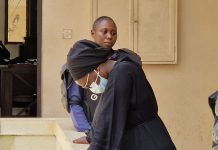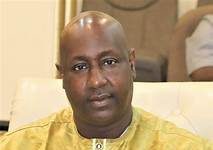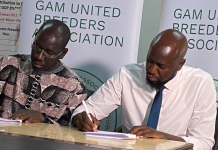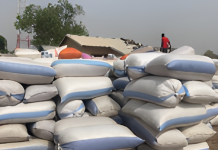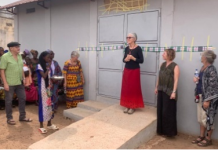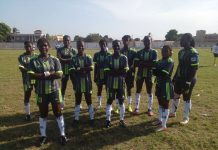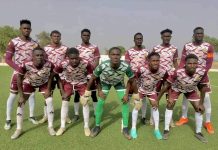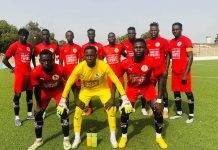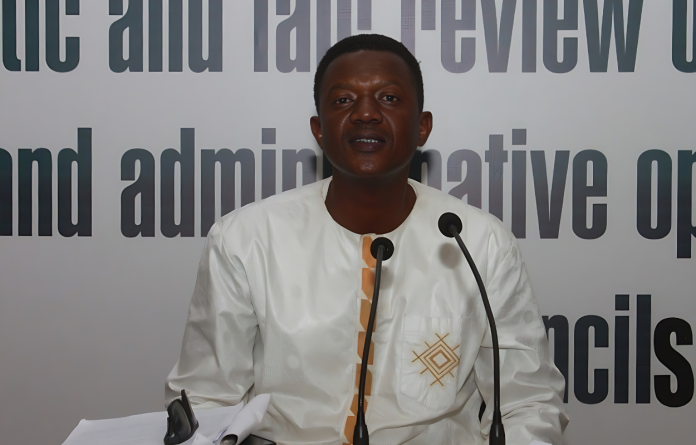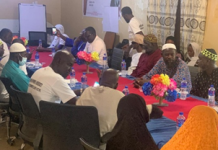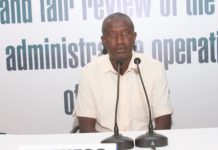By Makutu Manneh
Sulayman Barry, the principal auditor of the Brikama Area Council (BAC) has informed members of the Local Government Commission of Inquiry (LGCI) that D1.2 million generated from the sale of BAC assets cannot still be accounted for.
Barry made this disclosure during his appearance before Commissioners of Local Government Commission of Inquiry when he appeared to testify as a witness.
According to Mr Barry, the audit team was informed by the auction committee that the said money was entrusted to Lamin Suso and they still cannot account for it.
“The audit team made a follow up on this money, but still there is no trace of it,” he said.
Barry said the management of BAC did not still respond to the unaccounted D1.2 million Dalasi, but the management said they have recovered one hundred and three thousand Dalasi through the Courts, following a default of the bidders. However, he added that the Management of the BAC did not provide evidence on the claimed recovery of D103,000 to the audit team.
Barry explained to Commissioners that the contracts committee minutes of 10th November 2020 meeting indicated that there was an issue of unaccounted proceeds from the Council’s sales amounting to twenty-four thousand Dalasi (D24,000).
The witness proceeded to say that the Council generated sixty thousand Dalasi (D60,000) from the bid sales, but only thirty-six thousand Dalasi (D36,000) was paid to the Gambia Public Procurement Authority (GPPA) while D24,000 was unaccounted for by the Council. He said BAC management’s response to their audit query was that the balance of D24,000 was used for refreshment and for bid opening and sitting allowances.
In another issue, Barry said Nfansu Bojang, a value property collector of the Council, collected one million, eight hundred and forty seven Dalasi (1,847,000) between February 2020 and December 2020, but said until now, there is no evidence to show that he has deposited the money in the Council’s account. He said there are records of these monies in his (Nfansu) cash book, but there are no bank slips to confirm the deposits and also the principal accountant’s record did not show any deposit of the funds in the Council’s account.
The witness continued to say that the above mentioned collector does not come for submission and reconciliation at the Internal Audit Unit.
“Management responded that they will investigate the matter, but still they have not done anything about it and Nfansu Bojang is still a revenue collector for the Council,” he said.
On Revenue Suppression:
Witness Barry informed the Commission that the 2020 audit report system of the Council indicated that there was revenue suppression, and said they were informed by Yankuba Kujabj, a market master, that the monies were not used on Council’s activities.
The BAC Principal auditor added that market collectors used to give their funds to the Market Master to deposit the money at the bank, but said Yankuba Kujabi informed them that he used to receive calls from the Director of Finance to provide him cash for use on Council’s activities. He testified further that the Director of Finance was confronted with the information obtained from Yankuba Kujabi and he (the Director of Finance) promised to provide them with vouchers which until now, have not been provided.
The witness said the Management responded that they will address the issue to avoid a repeat, and added that the practice has stopped now.
The witness added that some revenue collectors would collect monies from people and will not post the information in their cash books not knowing that the dashboard at the Council has the details.
“The revenue collectors would deliberately choose not to record their collections in their cash books, not knowing that the details are contained in the dashboard / screen at the Council,” he said.
The witness continued to say that a weak internal control exists at the Brikama Area Council (BAC), adding that the auditors do their work and come up with findings, but the management of the Council does not take the steps necessary to address these issues to ensure revenue collectors stop the practice of revenue suppression. The witness said some revenue collectors post transactions in their cash books, but will not bring their books for auditing, and added that others do not bring their exhausted GTRs (receipt books) for auditing.
“There is a high tendency of using the duplicates to generate revenue,” the witness said. The witness said in 2020, there were employees who were due for retirement but did not, adding that after the audit report, they were eventually retired.
Sitting continues.

